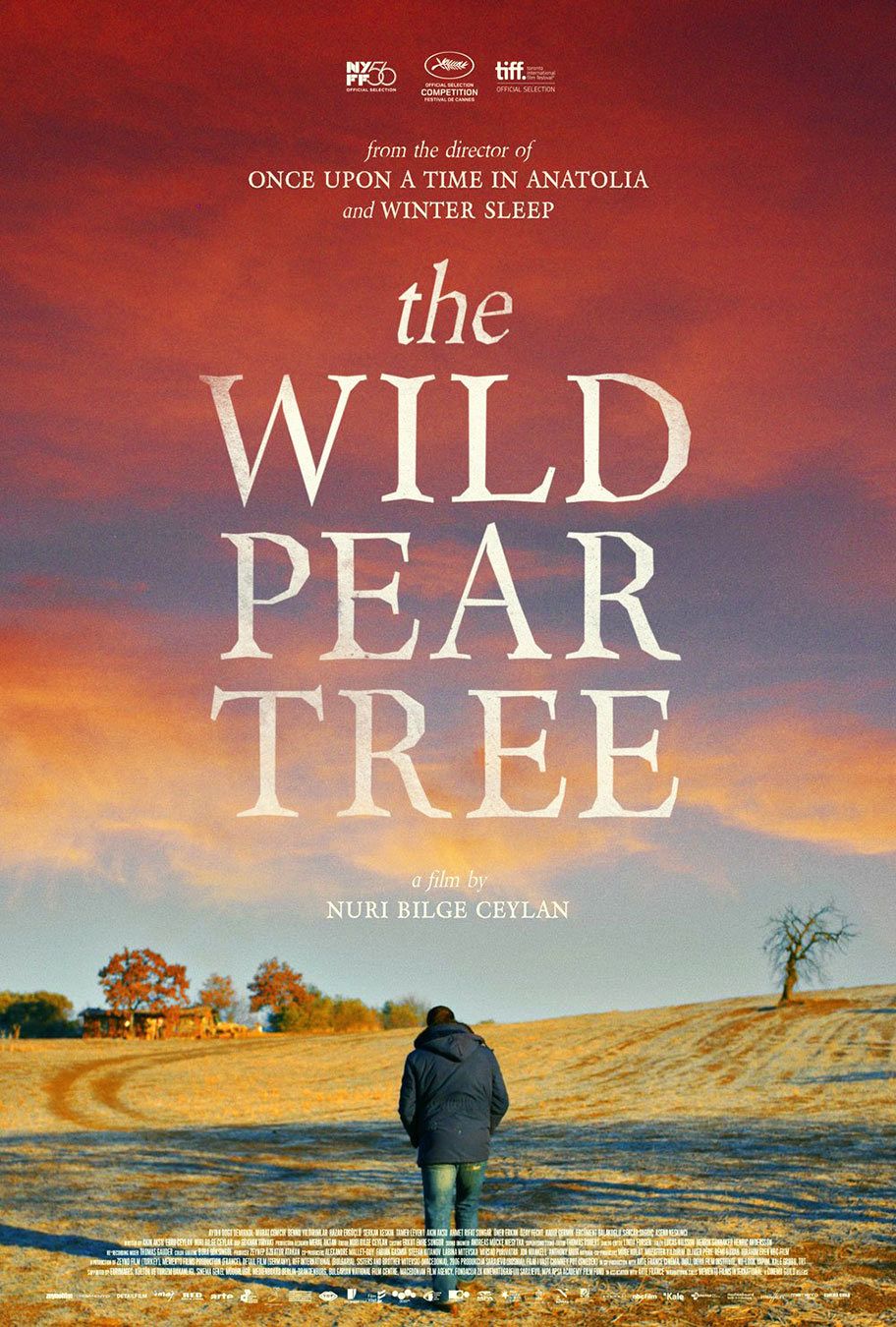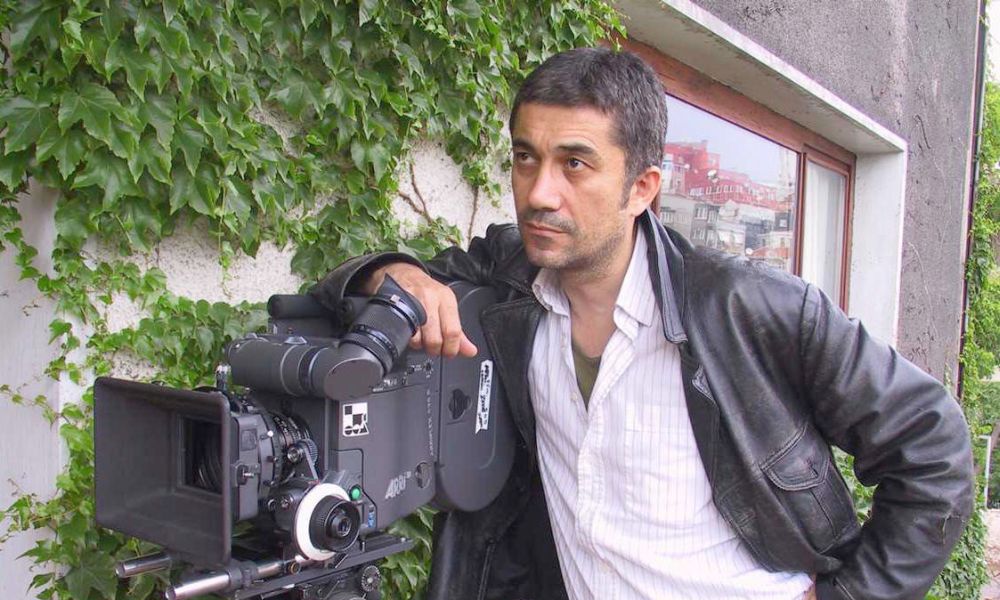"In the deliberately paced existential dramas of the Turkish maverick Nuri Bilge Ceylan, quiet moments of reflection take prominence over narrative exposition... Only the Russian director Aleksandr Sokurov can make rolling clouds appear more sumptuous." - Andrew Bailey (Cinema Now, 2007)
Nuri Bilge Ceylan
Director / Screenwriter / Editor / Cinematographer
(1959- ) Born January 26, Istanbul, Turkey
Top 250 Directors / 21st Century's Top 100 Directors
(1959- ) Born January 26, Istanbul, Turkey
Top 250 Directors / 21st Century's Top 100 Directors
Key Production Countries: Turkey, France, Germany
Key Genres: Drama, Psychological Drama, Ensemble Film, Mystery, Urban Drama, Crime Drama
Key Collaborators: Zeynep Ozbatur Atakan (Producer), Gökhan Tiryaki (Cinematographer), Ayhan Ergürsel (Editor), Ebru Ceylan (Screenwriter/Leading Character Actress/Production Designer), Emin Toprak (Leading Character Actor), Fatma Ceylan (Leading Character Actress), Muzaffer Özdemir (Leading Actor), Emin Ceylan (Leading Actor), Nazan Kirilmis (Leading Actress), Ercan Kesal (Screenwriter/Leading Character Actor), Muzaffer Yildirim (Producer), Bora Göksingöl (Editor)
Key Genres: Drama, Psychological Drama, Ensemble Film, Mystery, Urban Drama, Crime Drama
Key Collaborators: Zeynep Ozbatur Atakan (Producer), Gökhan Tiryaki (Cinematographer), Ayhan Ergürsel (Editor), Ebru Ceylan (Screenwriter/Leading Character Actress/Production Designer), Emin Toprak (Leading Character Actor), Fatma Ceylan (Leading Character Actress), Muzaffer Özdemir (Leading Actor), Emin Ceylan (Leading Actor), Nazan Kirilmis (Leading Actress), Ercan Kesal (Screenwriter/Leading Character Actor), Muzaffer Yildirim (Producer), Bora Göksingöl (Editor)
"No one does melancholy like Nuri Bilge Ceylan. Citing Chekhov as inspiration, Ceylan insists his films are "ordinary stories of ordinary people". But there is nothing ordinary about his films, which achieve a simple power through an accumulation of acting vignettes and perfectly composed snapshots of unspoken sorrow. He creates a world in which alienation is infectious and all-pervasive, where laughter and tears are mere interludes to the main business of silence and loneliness." - Ali Jafaar (The Rough Guide to Film, 2007)
"That this incredibly gifted filmmaker, whose style leans heavily on Antonioni but seems to have a dexterity, an interest in apparitions and a socio-national identity all its own, is not more well known stateside is some sort of misdemeanor offense. Were it another era, the cinema of Ceylan would already have been hailed as essential viewing for those trying to understand the intersection between the West and Islam that is modern Turkey." - Brandon Harris (Filmmaker Magazine)

Distant (2002)
"There is an honesty, an authenticity that serves as a wonderfully sturdy foundation for the artifice he creates, but as with Kiarostami’s beguiling blends of “reality” and “fiction”, Ceylan’s methods are essentially poetic. Both his narrative and his visual style might be termed “impressionistic”; he favours ellipsis, discreet metaphor, repetition, rhyme and rhythmic flexibility; and he is acutely alert to place and time, as expressed by the seasons, by changes in sound and light, and to how they affect our moods. But besides Kiarostami there are two other points of comparison I’d like to suggest. Ceylan’s awareness of how the experience of individuals is affected by changes in the world around them recalls the work of Edward Yang; and then there is the humour, so droll, so deliciously deadpan, so inextricably tied up with a view of life as darkly absurd, maybe even tragic, that one can’t but think of Keaton." - Geoff Andrew (Senses of Cinema)
"Ceylan came to cinema late, making his first short at 36. His first features – the self-financed Kasaba (1997) and its almost sequel, Clouds of May – were shot in the rural area around Yenice, in the Northern Aegean province of Çannakale, where he grew up. He has always made extremely personal films. His early casts included his parents, while 2002's Uzak (Distant) – the film that made his international reputation – was shot partly in Ceylan's own Istanbul flat, and could be read as a veiled self-portrait, its protagonist a world-weary bourgeois bohemian. Then came Climates (2006), a troubling depiction of a relationship's breakdown. It starred the director and his wife, Ebru Ceylan, but was definitely not about their marriage, Nuri has always insisted: the pair are still together, and co-writers on his last two films." - Jonathan Romney (The Independent)
"In what is, admittedly, a pretty crowded field, Turkish director Nuri Bilge Ceylan might just be the most melancholic man in film-making. “I don’t have very optimistic feelings about life,” he tells me during a recent visit to London. “I like to look at things realistically – and with that realism comes pessimism.” As with the man, so with his movies. Go looking for happiness in Ceylan’s films – the last four of which, Uzak, Climates, Three Monkeys and Once Upon a Time in Anatolia have all been garlanded at Cannes – and you’ll come away with scarcely a smile. What you will find, however, among the schemers and adulterers, depressives and desperadoes that populate his extraordinarily beautiful, richly rewarding pieces, are the kind of piercing insights into the oddities of the human heart that seldom find their way into cinemas." - Benjamin Secher (The Telegraph)
Selected Filmography
{{row.titlelong}}
Nuri Bilge Ceylan / Favourite Films
Andrei Rublev (1966) Andrei Tarkovsky, The Death of Mr. Lazarescu (2005) Cristi Puiu, L'Eclisse (1962) Michelangelo Antonioni, A Man Escaped (1956) Robert Bresson, Mirror (1975) Andrei Tarkovsky, Shame (1968) Ingmar Bergman, Stranger Than Paradise (1984) Jim Jarmusch, Through the Olive Trees (1994) Abbas Kiarostami, Tokyo Story (1953) Yasujiro Ozu, Vive L'Amour (1994) Tsai Ming-liang.
Source: Sight & Sound (2022)
Andrei Rublev (1966) Andrei Tarkovsky, The Death of Mr. Lazarescu (2005) Cristi Puiu, L'Eclisse (1962) Michelangelo Antonioni, A Man Escaped (1956) Robert Bresson, Mirror (1975) Andrei Tarkovsky, Shame (1968) Ingmar Bergman, Stranger Than Paradise (1984) Jim Jarmusch, Through the Olive Trees (1994) Abbas Kiarostami, Tokyo Story (1953) Yasujiro Ozu, Vive L'Amour (1994) Tsai Ming-liang.
Source: Sight & Sound (2022)
Nuri Bilge Ceylan / Fan Club
Andrew Haigh, Riad Sattouf, Nick James, Michał Oleszczyk, Pawel Pawlikowski, Nadav Lapid, Michel Ciment, Dave Calhoun, Uri Klein, Akin Omotoso, Amat Escalante, J. Hoberman.
Andrew Haigh, Riad Sattouf, Nick James, Michał Oleszczyk, Pawel Pawlikowski, Nadav Lapid, Michel Ciment, Dave Calhoun, Uri Klein, Akin Omotoso, Amat Escalante, J. Hoberman.
"Fan Club"
These film critics/filmmakers have, on multiple occasions, selected this director’s work within film ballots/lists that they have submitted.
These film critics/filmmakers have, on multiple occasions, selected this director’s work within film ballots/lists that they have submitted.


